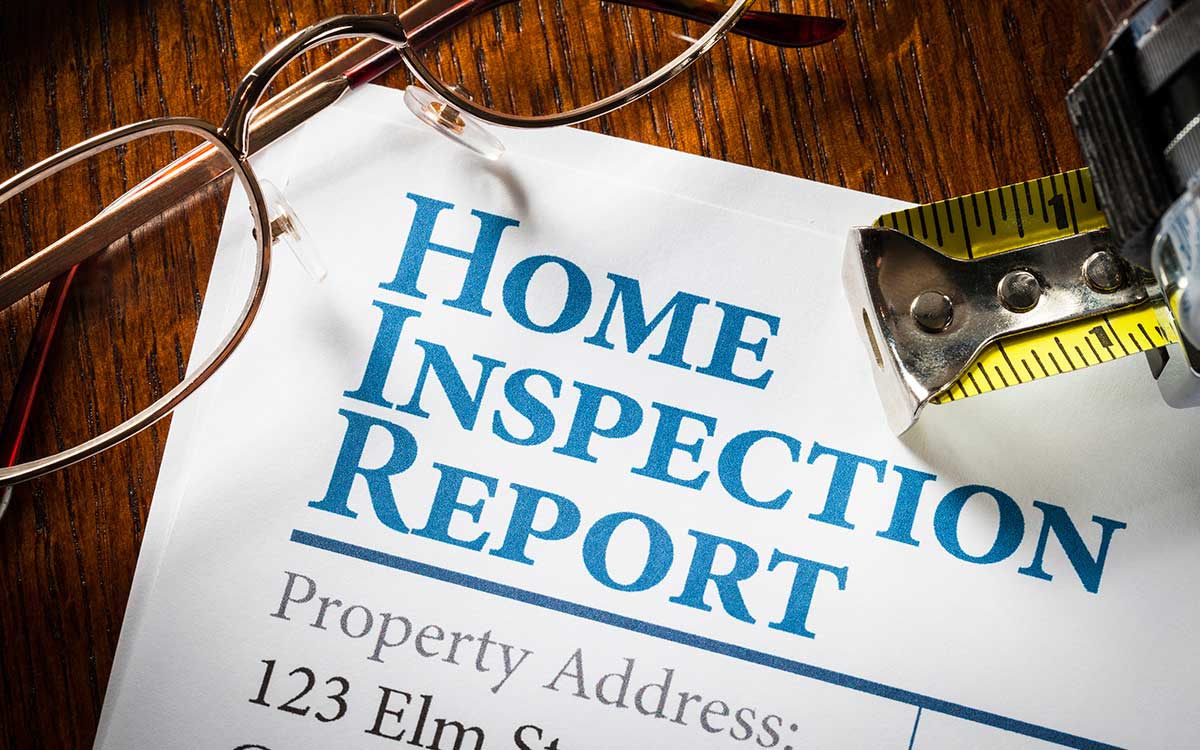A home inspection is a critical part of any home sale. It assesses the house based on functionality. Do the major components such as the roof, appliances and plumbing perform properly? Home inspectors are trained professionals who visually inspect everything and provide a detailed, written log of every aspect of the home that is deficient, hazardous, or nearing the end of its life.
Unless you are buying a brand new home, your home inspector will likely find problem areas. Don’t stress. This doesn’t mean the house of your dreams is unlivable. It means you need to be aware of key areas. Maybe the roof is good for now, but old enough that it will likely need to be replaced within a few years. Or perhaps the water heater is broken. Think how important this information is to you and the people funding your purchase—your bank. The home needs to be kept in good shape so that it maintains the value your bank loaned you.
If the inspection finds that significant money will be required for home maintenance immediately or in the near future, one of two things happen.
- Most frequently, you will renegotiate the details of the home purchase. For example, imagine you bid $200,000 on a home and your offer is accepted. A few days later, the home inspection reveals an electrical problem in the kitchen that would cost $500 to fix. A logical next step is to ask the seller to fix the electrical problem before closing. A second option is to require the seller to knock $500 off the sale price, making it $199,500, and then you would be responsible to fix the electrical problem. If the seller doesn’t agree to fix the issues discovered during the inspection or renegotiate the price, you can get your earnest money back and no longer have to buy the home.
- A less common option is that you, along with your bank, ensure that you are able and willing to take on the financial burden of all repairs. This allows you to purchase the home as-is.
The home inspection is likely to introduce a list of items that need to be negotiated. If you are taking advantage of Homie’s free Buy Any Home program, you will have the assistance of a Homie attorney who draws up all paperwork for you as you negotiate. Amazing!
When you sign a sales agreement, that’s a great start on buying a home. But what really “seals the deal” is keeping a calm, reasonable approach during the negotiation over repairs. Be willing to listen to what the sellers want. State clearly what you want. Listen to the advice of your real estate attorney. Think outside the box to come up with possible solutions. Remember that both parties want the deal to go through. Once you’ve gathered all your data, make your decisions based on what is best for you and be firm with that decision. If a seller refuses to pay for a repair, feel free to shop elsewhere for a house. A sale that falls through is often better than a sale that isn’t right for you. You can always make a different decision the next time around.
Before wrapping up this post, let me throw out a few final tips:
A home inspection is not a Magic 8 Ball. It helps identify what’s wrong with the home right now, but it doesn’t predict the home’s future. Stuff breaks, and that’s very sad. Buyers should always budget routine home repairs into the cost of owning a home.
Tackle problems uncovered in the home inspection before closing. Don’t wait until after you own the house to see how much the plumbing repairs will cost! Get repair estimates for everything and know exactly what you are buying.
Please, please, please. No matter what you do. Don’t forget to sign up for Homie’s Buy Any Home Program, a service with no cost to you and no catch. Our goal is to create a seamless marketplace where buyers and sellers can connect and save big money as they buy and sell homes. By offering these services for free to buyers, we’re helping our sellers who pay us a small fee to advertise their homes for sale and buyers benefit big!

